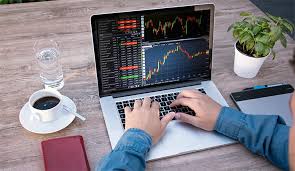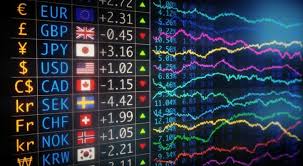
The Ultimate Guide to Forex Trading Online
Forex trading online has become a popular way to invest and participate in the global financial markets. With the advent of technology and the internet, trading in currencies has never been more accessible. A plethora of platforms, resources, and tools are available for both novice and experienced traders. If you’re interested in forex trading, understanding the fundamental aspects is essential to foster a successful trading experience. This article will explore various elements of forex trading, including strategies, types of analysis, managing risks, and much more. For more resources, check out forex trading online exbroker-turkiye.com.
What is Forex Trading?
Forex, or foreign exchange, refers to the global marketplace for trading national currencies against one another. It is one of the largest financial markets in the world, with a daily trading volume exceeding $6 trillion. Traders engage in forex trading by buying one currency while simultaneously selling another, capitalizing on the fluctuating exchange rates to make a profit.
Understanding Currency Pairs
In forex trading, currencies are traded in pairs (e.g., EUR/USD, GBP/JPY). The first currency in a pair is referred to as the base currency, while the second is the quote currency. The exchange rate indicates how much of the quote currency is needed to purchase one unit of the base currency. For instance, if the EUR/USD pair is trading at 1.15, it means that 1 Euro equals 1.15 US Dollars.
The Trading Platforms
Forex trading online is conducted through trading platforms offered by brokers. These platforms provide traders with the tools they need to analyze the market and execute trades. Common features of trading platforms include:
- User-friendly interface
- Advanced charting tools
- Customizable indicators
- Real-time market news and analysis
- Automated trading options
Choosing the right trading platform can significantly impact your trading success.
Types of Analysis in Forex Trading
Successful forex trading involves analyzing the market to make informed decisions. There are three primary types of analysis:
1. Fundamental Analysis
This type of analysis focuses on economic indicators, news events, and global factors that influence currency values. Traders look at interest rates, GDP growth, employment data, and political stability to assess the potential strength or weakness of a currency.
2. Technical Analysis
Technical analysis involves studying historical price movements and utilizing various indicators to predict future price trends. Traders use charts, patterns, and indicators like moving averages, MACD, and RSI to identify potential entry and exit points.
3. Sentiment Analysis
This approach gauges the overall sentiment in the market, determining whether traders are predominantly bullish or bearish. Tools like the Commitment of Traders (COT) report can provide insight into market sentiment.
Developing a Trading Strategy

Having a solid trading strategy is essential for success in forex trading. Some popular trading strategies include:
1. Day Trading
Day traders open and close positions within the same day, aiming to capitalize on small price movements. This style requires discipline and a keen understanding of market volatility.
2. Swing Trading
Swing traders hold positions for several days to weeks, looking to benefit from larger price swings. This method requires careful analysis and a strong grasp of technical indicators.
3. Position Trading
Position traders take long-term positions, holding onto currencies for weeks, months, or even years. This strategy often incorporates fundamental analysis to identify potential long-term trends.
Risk Management in Forex Trading
Effective risk management is crucial in forex trading. This involves not only ensuring that potential losses are minimized but also managing emotions that can lead to impulsive decisions. Here are some risk management strategies:
- Use Stop-Loss Orders: Setting stop-loss orders helps protect your capital by automatically closing a position at a predetermined loss.
- Allocate Appropriate Capital: Never risk more than you can afford to lose. Aim to risk only a small percentage of your trading capital on each trade.
- Diversify Your Portfolio: Avoid putting all your capital into a single trade. Diversifying your trades across various currency pairs can reduce risk.
Emotional Discipline and Trading Psychology
Trading can be an emotionally charged activity. Fear and greed are common emotions that can lead to poor decision-making. Developing mental discipline and a solid trading psychology is vital for long-term success. Here are some tips:
- Stay Informed: Knowledge is power. Keeping abreast of market news and trends can help you make rational decisions.
- Maintain a Trading Journal: Document your trades, strategies, and emotional responses to improve your trading psychology over time.
- Set Realistic Goals: Understand that trading takes time to master. Set achievable goals and remain patient.
The Future of Forex Trading
The forex market continues to evolve with advances in technology and changes in global economic dynamics. The rise of artificial intelligence, machine learning algorithms, and increasing access to trading through mobile platforms are set to transform the way retail traders engage in forex trading. Staying informed about these trends can provide traders with an advantage in the marketplace.
Conclusion
Forex trading online presents significant opportunities and challenges. By understanding the fundamentals, utilizing effective strategies, managing risks properly, and maintaining emotional discipline, traders can enhance their chances of success in this dynamic market. Whether you are a beginner or an experienced trader, continuous learning and adaptation are key components to thriving in forex trading.
